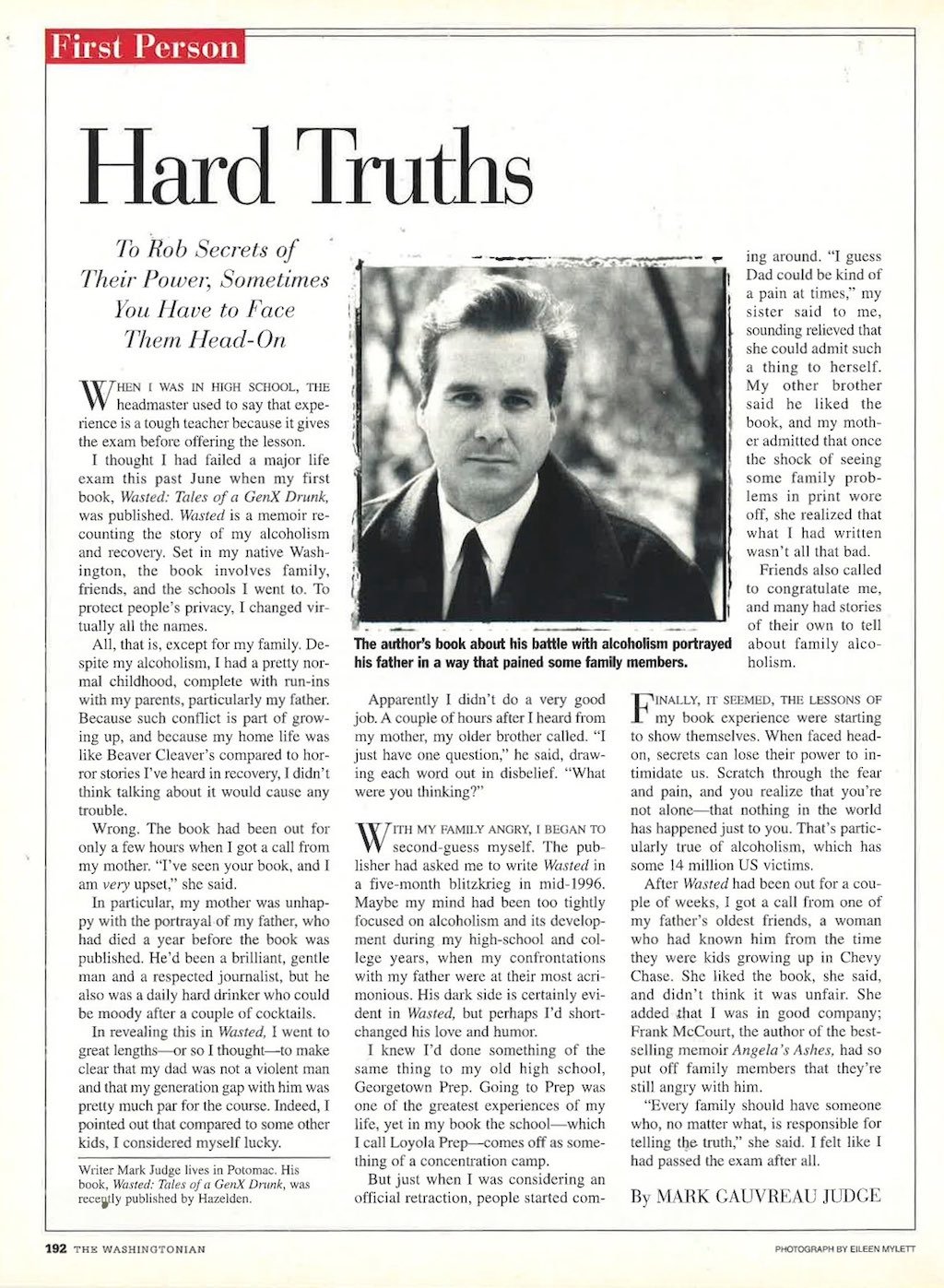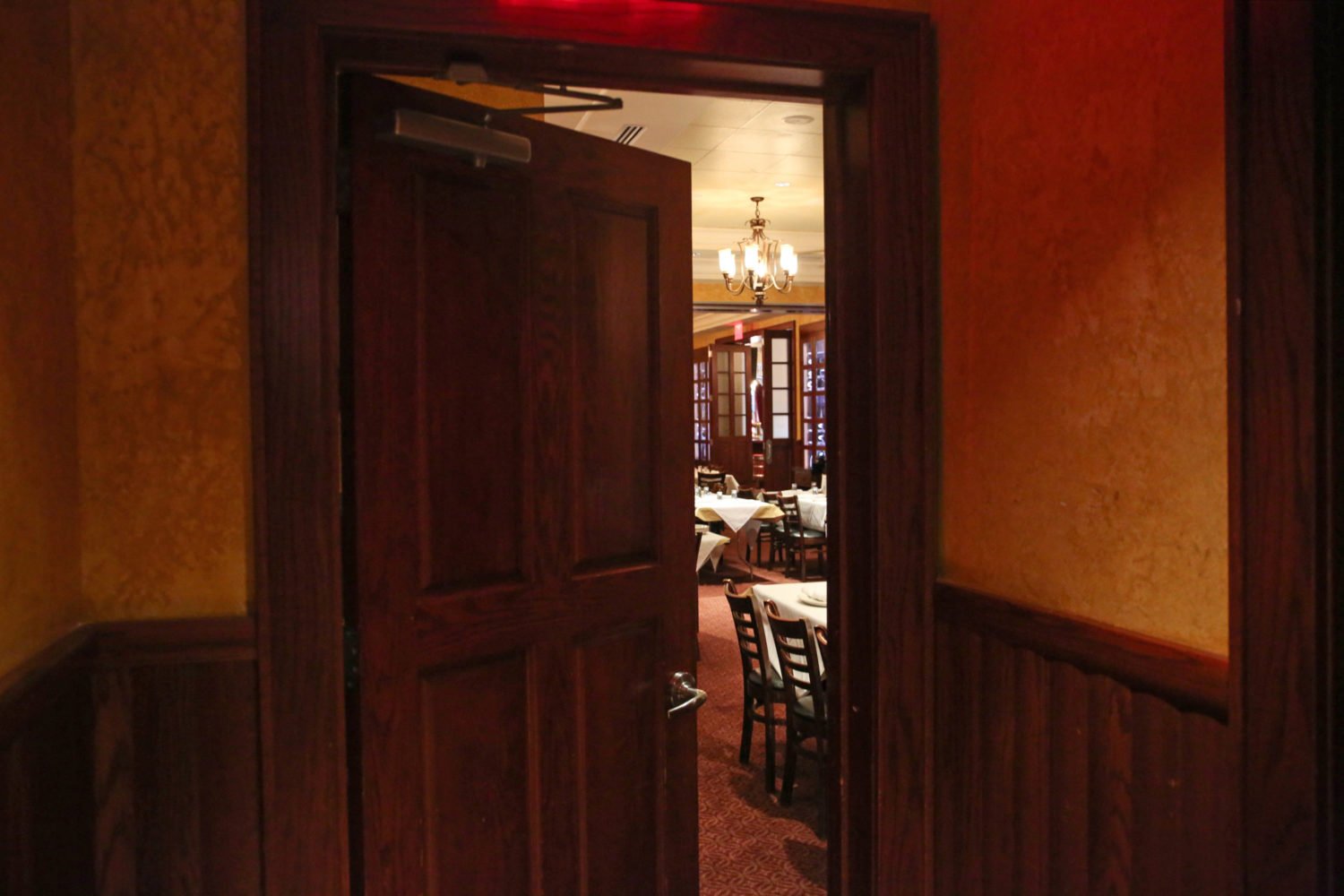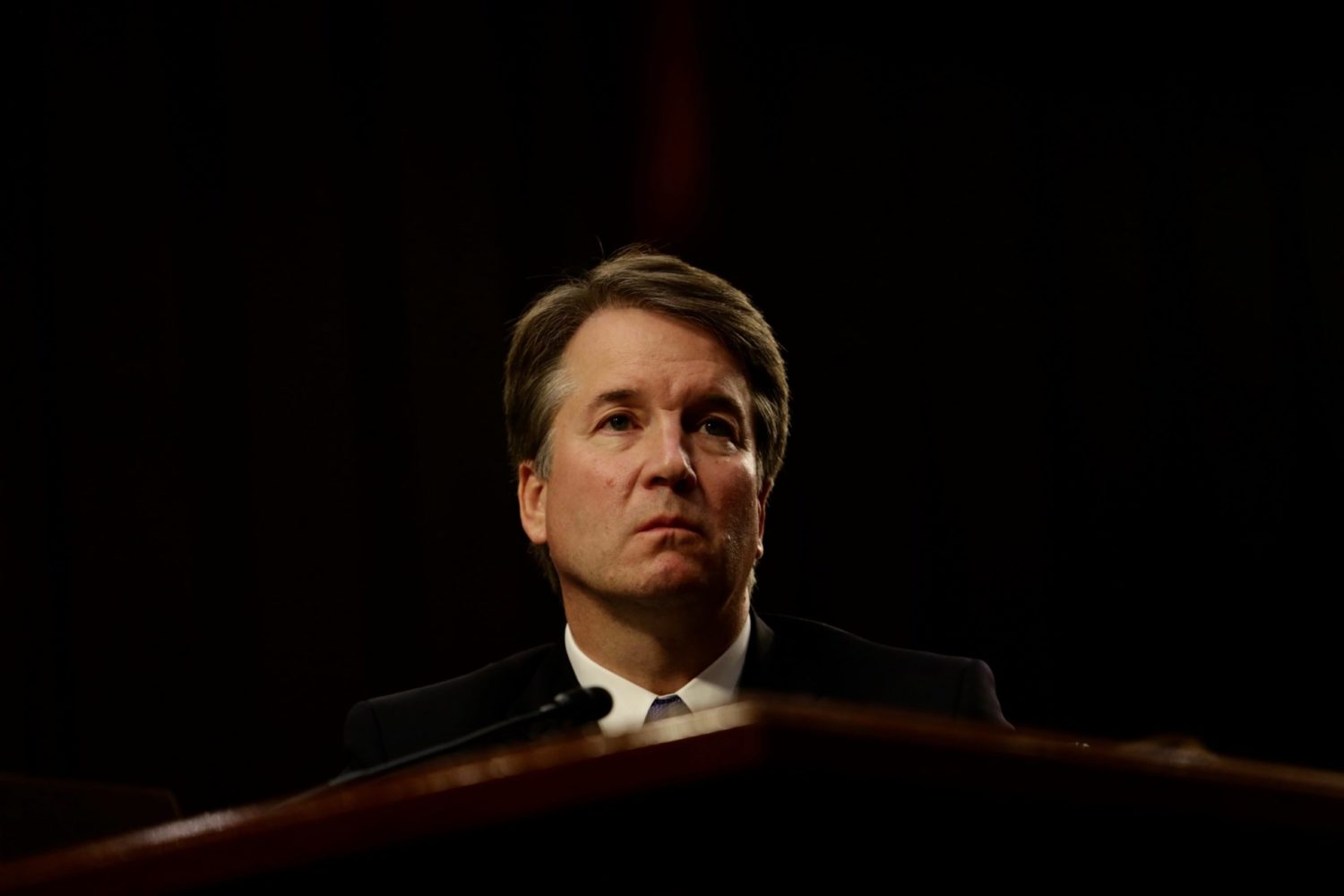Christine Blasey Ford says Supreme Court nominee Brett Kavanaugh sexually assaulted her in high school, and that Washington writer Mark Judge was in the room. Both were students at Georgetown Prep at the time. Judge denied the incident to the New York Times, saying “I never saw anything like what was described” and that, regarding Kavanaugh, “It is not who he is.”
As Stephanie Mencimer reported in Mother Jones, Judge’s 1997 memoir of his time at Georgetown Prep describes heavy drinking, at times to the point of blacking out. (It also features a cameo by a “Bart O’Kavanaugh,” who “puked in someone’s car the other night” and “passed out on his way back from a party.”)
After that memoir came out, Judge wrote an essay for Washingtonian describing what he said was the turmoil his portrayal of his father had imposed on his family (our archives are not fully digitized, but this appears to be Judge’s only Washingtonian byline). But then his family began to come around, he wrote, and a family friend told him the book was not unfair. That was in September 1997. Two months later, Washingtonian published a letter from Judge’s brother Michael, who said “The great, insoluble problem of my family has never really been my father.” Here are both pieces as they appeared in print.
Hard Truths
To Rob Secrets of Their Power, Sometimes You Have to Face Them Head-On
When I was in high school, the headmaster used to say that experience is a tough teacher because it gives the exam before offering the lesson.
I thought I had failed a major life exam this past June when my first book, Wasted: Tales of a GenX Drunk, was published. Wasted is a memoir recounting the story of my alcoholism and recovery. Set in my native Washington, the book involves family, friends, and the schools I went to. To protect people’s privacy, I changed virtually all the names.
All, that is, except for my family. Despite my alcoholism, I had a pretty normal childhood, complete with run-ins with my parents, particularly my father. Because such conflict is part of growing up, and because my home life was like Beaver Cleaver’s compared to horror stories I’ve heard in recovery, I didn’t think talking about it would cause any trouble.
Wrong. The book had been out for only a few hours when I got a call from my mother. “I’ve seen your book, and I am very upset.” she said.
In particular, my mother was unhappy with the portrayal of my father, who had died a year before the book was published. He’d been a brilliant, gentle man and a respected journalist, but he also was a daily hard drinker who could be moody after a couple of cocktails.
In revealing this in Wasted, I went to great lengths—or so I thought—to make clear that my dad was not a violent man and that my generation gap with him was pretty much par for the course. Indeed, I pointed out that compared to some other kids, I considered myself lucky.
Apparently I didn’t do a very good job. A couple of hours after I heard from my mother, my older brother called. “I just have one question,” he said, drawing each word out in disbelief. “What were you thinking?”
With my family angry, I began to second-guess myself. The publisher had asked me to write Wasted in a five-month blitzkrieg in mid-1996. Maybe my mind had been too tightly focused on alcoholism and its development during my high-school and college years, when my confrontations with my father were at their most acrimonious. His dark side is certainly evident in Wasted, but perhaps I’d short-changed his love and humor.
I knew I’d done something of the same thing to my old high school, Georgetown Prep. Going to Prep was one of the greatest experiences of my life, yet in my book the school—which I call Loyola Prep—comes off as something of a concentration camp.
But just when I was considering an official retraction, people started coming around. “I guess Dad could be kind of a pain at times,” my sister said to me, sounding relieved that she could admit such a thing to herself. My other brother said he liked the book, and my mother admitted that once the shock of seeing some family problems in print wore off, she realized that what I had written wasn’t all that bad. Friends also called to congratulate me, and many had stories of their own to tell about family alcoholism.
Finally, it seemed, the lessons of my book experience were starting to show themselves. When faced head-on, secrets can lose their power to intimidate us. Scratch through the fear and pain, and you realize that you’re not alone-that nothing in the world has happened just to you. That’s particularly true of alcoholism, which has some 14 million US victims.
After Wasted had been out for a couple of weeks, I got a call from one of my father’s oldest friends, a woman who had known him from the time they were kids growing up in Chevy Chase. She liked the book, she said, and didn’t think it was unfair. She added that I was in good company; Frank McCourt, the author of the best-selling memoir Angela’s Ashes, had so put off family members that they’re still angry with him.
“Every family should have someone who, no matter what, is responsible for telling the truth,” she said. I felt like I had passed the exam after all.
Writer Mark Judge lives in Potomac. His book, Wasted: Tales of a GenX Drunk, was recently published by Hazelden.
LETTERS
Hard Truths
My father, Joseph Judge, is not alive to respond to my brother’s recent literary activity—either to his memoir or to his further rumination on his family in the First Person column of the September Washingtonian. Nor did Joseph Judge’s brave struggle against cancer find a way into either account. It doesn’t really matter. If my father still lived, he would judge the book by its literary merits, purely as a piece of writing.
A journalist of the old school, he would have examined the structure of the sentences and the paragraphs they built, the mood of the reportage; how, simply, the thing read. Then he probably would have inquired after sales figures.
If asked whether he was wounded by the book’s portrait of him, my father would have shrugged with his palms spread wide like Chico Marx. “Mark called it as he saw it,” he would have said, laughing with that laugh peculiar to him, beginning at the first word of the sentence and carrying through, increasing in volume, until the laughter and the words became one. “I never knew I was that much of a son of a bitch'”
Then, truth be told, he would have poured himself a drink. Truth be told, I’d have joined him.
There are truths to be told about every family, many of them painful, many of them laden with shame. Forget about Tolstoy’s famous axiom about all happy families being the same and all unhappy ones unique. All families are unique; all, to a certain degree, unhappy.
But unhappy is too neat and small a word for the strange territory shared by people of the same blood. My family has had its arguments and its crises, its tragedies and its embarrassments. It has also been, thanks in no small degree to my father, a marvelously gifted and joyful family, full of laughter and imagination. Both realities exist together.
I was content to live with that truth until now, until my brother wrote his memoir. For the painful secret of Mark’s book and subsequent magazine article, the real truth that “someone who, no matter what, is responsible for,” is a very simple one. The great, insoluble problem of my family has never really been my father.
Mark claims in his book that we all lived in terror of my father’s drunken outbursts. I can only say that he is right in one thing; my family did come to fear one of its members. As another member of our family commented during one of many meetings about Mark’s behavior, “Mark went to Markland a long time ago.” He still lives there. Sadly for my mother, that still means home.
And that’s it, that’s the real problem—not alcoholism or a lousy childhood or an abusive father. Mark is a solipsist: spoiled as a child, gazing always inward, unable to recognize any pain but his own. That is why he could not come to understand or forgive my father, in the way that all adult sons must eventually understand and forgive. Mark never left home long enough to see my father not as the ogre snoring in the other room but as a human being.
I have said some hard things about my brother, whom I love and pity. I have done so because only two things remain on this earth as testimonies to my father: the memories of those who have survived him, and a tell-all book. Memories fade and people die, but books outlast empires. I would hate to have someone years from now read my brother’s words and assume the worst of a man I loved.
I did not love him simply because he was my father. He was also my dearest friend. Now he is dead, and someone must speak for him; despite the tyranny of my brother’s righteousness, certain truths on his behalf must be told. Here’s truth. My father got drunk; my father could be short and sloppy and pompous and cruel. Here’s truth, too. Joe Judge also could be tender, magnanimous, extraordinarily caring, and roaringly funny. He was, in short, a man, with all of man’s faults, and in the end a heroic one who passed into eternity with a courage that astounded all who witnessed it.
Let at least this be said from the other son, who spent the six months after his father’s passing in private grief, not in contractual agreements and calls to agents: I miss my father painfully, remember him with honor and with love, and charge no levies against his memory.
Michael Judge
Washington, DC

















